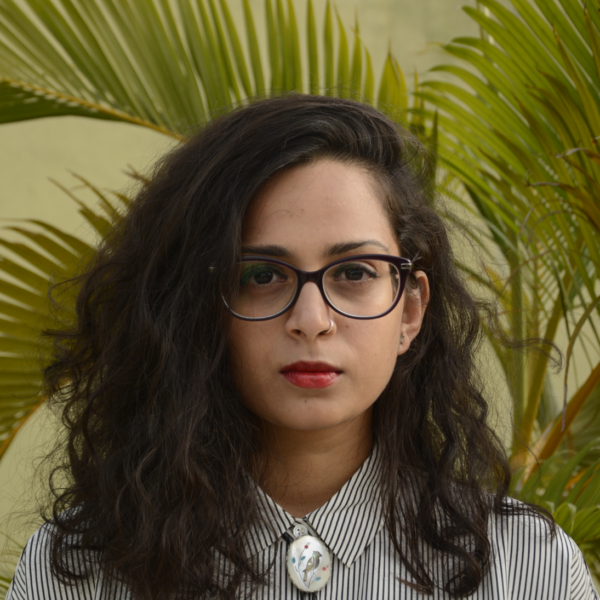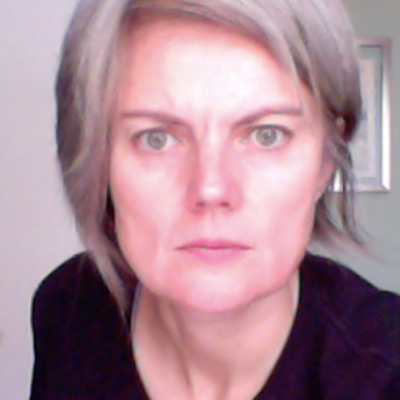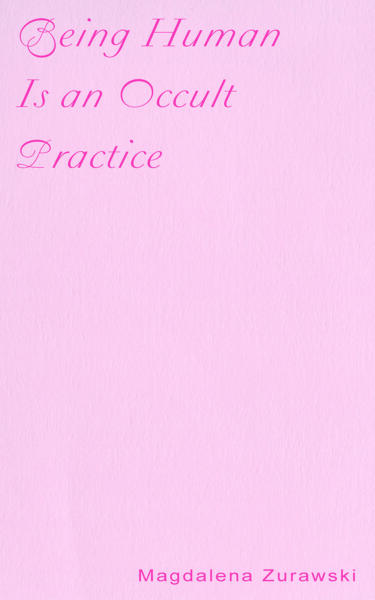When Magdalena Zurawski’s pamphlet Being Human Is an Occult Practice arrived in the mail last October, I read it immediately, twice. I’d been looking forward to it because of its title and because it is among a series of commissioned writings organized and distributed by the brilliant Ugly Duckling Presse. I didn’t know what the essay would be about, just that it would be good. In fact, it is excellent.
Zurawski’s essay makes a case for playfulness and purposelessness—“a logic foreign to the machinations of neoliberalism”—in US higher education, i.e. within a system that is “synonymous with debt,” whose “financial burdens and anxieties … stoke in students the fear of erring in their choice of study, so that they view their path into the future as either one of financial viability at the expense of intellectual and creative possibility, or of personal possibility at the risk of financial peril.”
Being Human is the first pedagogy-related text I’ve read in a long, long time that really took me somewhere, suggested new lines of inquiry and practice, and made articulable some thoughts/ feelings that have been lurking in me, undifferentiated and unlanguaged. Thank you, Maggie, for the essay, and for this interview with me!
Aditi Machado: For a few years now, on various “job market” documents, I’ve used the adjective “playful” (alongside “critical” and “embodied”) to describe the “practices of making knowledge” I claim to teach in US classrooms. It’s a word I’ve felt important to keep across multiple drafts, but no one’s ever asked me about it nor would I have been able to come up with a good answer before having read your essay—in particular, this extraordinary sentence in it” “Through aesthetic play the human person does not emerge superior to the world, but rather superior to work.” Could you talk a little about how you came to this idea as well as how play happens in your classroom?
Magdalena Zurawski: This sentence marks an important breakthrough in my understanding about aesthetic practice, a solution I came upon serendipitously. I’m a little embarrassed to call attention to my now several-decades-long obsession with two ideas in Kant’s Critique of Judgment, but I sadly can’t deny it. I’m a one trick pony that way. Kant gave me a way of naming two dramatic feelings that defined my experience of the world already in my childhood, so I tend to forgive him too much.
The first experience he helped me understand, which isn’t at issue in the sentence you quote, is his articulation of our mind’s ability to comprehend infinity as a finite idea. All that really means is that we can imagine something temporally or physically infinite despite the fact that such a thing is by definition impossible to circumscribe. And that this cognitive ability defines us as humans. This idea gave me a way of understanding a deep fear I had as a young child. I was sent to Catholic School where already in first grade we had religious instruction. One idea we were forced to grapple with at a young age was eternal life. At night while lying in bed I could really imagine eternity as a child. I could feel it. It was palpable and terrifying and it made me scared of dying, of going to heaven, and having to live forever. What a shitty idea. What a terrible destiny.
The second experience Kant named for me was this idea of play you bring up. He describes our experience of the beautiful as a process that instigates cognitive play. In other words, looking at something beautiful makes our mind play and that’s why we like beautiful things. Importantly, play is purposeless, but purposefully purposeless. Beautiful things make us think many things that serve no practical end other than experiencing the ability of our mind to have ideas. Experiencing our mind’s power in this way is purposeful in that it helps us to understand who we are as a species. We are an animal that plays in this very particular way. This sense of play named for me the joy I felt, for instance, while sitting in 11th grade English class talking about a John Donne poem. How exciting it was to let our minds explore the different directions a single trope could take us. That feeling of your mind extending itself in all these directions just because it can, that’s play. That’s why I always loved poetry.
The problem with play in Kant is that it defines the human in opposition to the rest of the world. The sublime and the beautiful enforce the idea that nothing in the material world is greater than the human mind. The world becomes, then, something humans can conquer and control. So how can I keep these ideas that name so much of what it means to be alive for me if they are taken from a philosophy that enables such a worldview? This is where Zora Neale Hurston comes in for the save. Early in my time teaching at the university I assigned Mules & Men for a graduate class on fabulisms. That text is great. She tracks the situations in which the Black working poor of her Florida hometown begin to engage in aesthetic play. It happens when the boss tries to make men into mules, when work becomes dehumanizing. That’s key. Aesthetic play is a way of regaining your dignity when work dehumanizes you.
So how does this affect my classroom? Well, the last two years I stopped teaching workshop for undergrads in the traditional sense. It’s become clear that they don’t have time to think about things, to just be and explore ideas, to play. They take five classes, work demanding part-time jobs, accrue debt, are exhausted all the time. So I moved workshop into the art building. We now meet twice a week for ninety minutes, instead of the once a week seminar. One day each week we just “make” poems in the classroom. I try to assign exercises that make language material—so they get the sense that they are indeed MAKING something. The second day they share work in small groups of three and four. I find that they have more meaningful conversations and get to understand each other’s projects better that way. They make friends over poetry. Poetry friends. Basically, I make class dedicated to them playing with language and finding others who need this kind of play to feel alive. It’s a space to write instead of a space to talk or critique writing. In a world that makes it hard for them to have time to play with words, I try to make class into that space.
AM: You’re reminding me of the time my students wrote homophonic translations of a passage from Lucretius, then read them out for each other, which took a huge chunk out of class time. We laughed so much. It was completely useless in a way, but utterly, deliciously fun. But I find that my (online) teaching methods have become quite a bit more conventional during the pandemic. How about you?
MZ: Because of administrative duties I only had to teach one class this semester—a graduate seminar. We don’t have an MFA program at my university, but a PhD in English literature with creative dissertation. When it’s my turn to teach a graduate course, I tend to avoid anything that resembles a traditional workshop because in my experience as a PhD student I found that expanding my knowledge of literary and intellectual history was the most valuable thing for my writing. This semester I wanted to teach aesthetics starting with the 18th century and I was struggling with how to choose the readings that would cover the last 100 years. There are so many options—so many narratives of aesthetics one could tell. But then the BLM protests made it clear that I should go from the Enlightenment to Black Study, in other words, from Burke and Kant to my former professor, Fred Moten. Once word got out that my course was going to be mainly philosophy, enrollment dropped from 10 to 4. This was a blessing because we were able to meet in my backyard in masks every week. For all 5 of us it was the only in-person activity we had each week. The pandemic, coupled with the reading, as well as the noise of my neighbor’s chickens, the fact that we had to use a fire pit to stay warm on occasion, made it beautifully ideal. The institution dropped away and it was just 5 people reading and trying to make it through a hellish socio-political situation. I wish I could teach in my backyard all the time. My university’s negligence in regards to the pandemic and the general corporatization of education have me longing for an alternative model of teaching and this small experience certainly made me long for the possibility of something like Black Mountain. I’m ready to drop out, just need to figure out how. We need to make a new world.
AM: I love that your pedagogy emphasizes making together, feeling alive, being human. But these are not, in my experience, acceptable “learning outcomes” or “career pathways.” What we do, or what want to do, in the classroom is fundamentally at odds with the university—a thought both thrilling and terrifying to me (who teaches, like you, in a public research university). How does one manage this?
MZ: I have no idea. All I know is that teaching at an R1 institution, I struggle on a daily basis to keep both teaching and research as the focus of my duties, despite the fact that those two activities are supposedly my job. I’d like to buy a lot of acreage and start a commune with friends and make all kinds of educational and creative realities possible. Universities are for football it seems.
AM: You write that “[i]n the literature classroom, a subversive path to knowing ourselves outside of the economic structures that order social life has always existed in occulted form.” I’ve taken your use of “occult” here and elsewhere in the essay as “hidden thing.” I’m beginning to think of teaching as an occult practice, an initiation of others into a secret, collaborative humanness … Would you say more about your understanding of this word “occult”?
MZ: That’s exactly how I meant it—a hidden thing. But of course poets have always used actual Occult traditions to imagine other paths. Over the past few years I have become close with Kristen Nelson and Selah Saterstrom, who practice all kinds of forms of divination and although I joke with them that I am just “witch adjacent,” I find these other languages for understanding our experiences incredibly comforting. It’s a way of staying ‘outside’ with others. Seeing the world as something other than a marketplace. I guess I am agoraphobic, if you define agora as marketplace.
AM: How or when did you come to recognize occulted forms/subversive spaces when you were a student?
MZ: English class in Catholic school. Our English teachers let us talk about the real world through literature. We didn’t have to be pious in the stupidly literal ways espoused in almost every other classroom. Our English teacher would shut off the intercom at the start of class, joke that there is no God, and then tell us to open our books. It was the space where we could call bullshit on the institution.
AM: You mentioned in an email that you’re taking Polish lessons. What is it that you enjoy about (re)learning this language?
MZ: My parents are both from Poland and I grew up speaking it, though I’m illiterate. For years I have been wanting to learn to read and write it, mostly because I was embarrassed that Americans are translating Polish poets I can’t even read. A few years ago I went to a conference on American poetry in Poland and I finally got to know a Poland that would have been mine, if I had been born there. I’m taking classes online twice a week with a woman in Poland—one of the blessings of the pandemic. She’s teaching me how to read and introducing me to Polish poetry. It’s great because she’s a radical high school Polish teacher.
AM: Lastly, Maggie, what is a playful thing you’ve been doing, or wanting to do, these days?
MZ: I’m playing guitar a lot. I’ve played guitar on and off since high school, but for most of my life I would stop for years at a time. I could never quite figure out how to learn to play the way I wanted to play, so I would put it aside. Writing came easier. But in grad school my neighbor would have crazy rock jams every night in her living room. I would write my dissertation during the day, then go there at night and play loudly and I loved it. Especially when I was on the job market. Suddenly I was selling my poetry wares and it made it feel terrible about writing. I didn’t want to write or think about poetry. I had a CV for poetry for the first time and it made me feel gross. But no one would ever pay for my guitar playing. Anyway, I’ve learned how to play my favorite song by Television and I’ve just about learned two Jimi Hendrix solos. And now I’m starting these rhythm exercises with the metronome that I think will lead to a cosmic shift in my consciousness—if I can just get to the point where it’s second nature to accent the two and the four.

Aditi Machado’s books include the poetry collections Emporium and Some Beheadings (both from Nightboat), and a translation of Farid Tali’s Prosopopoeia (Action Books). Her essay The End appeared as part of Ugly Duckling Presse’s 2020 pamphlet series. She teaches at the University of Cincinnati.

Magdalena Zurawski is the author of the novel The Bruise, which won the Ronald Sukenick Award from FC2 in 2008 and a LAMBDA literary award in 2009, and the collection of poems Companion Animal, which was published by Litmus Press in 2015 and won a Norma Faber First Book Award from the Poetry Society of America. The Tiniest Muzzle Sings Songs of Freedom (Wave Books 2019) is her most recent poetry collection. The Operating System also released Zurawski’s poem/essay Don’t Be Scared as a chapbook in Summer 2019. Her essay “Being Human is an Occult Practice” is currently available in UDP’s 2020 pamphlet series.
